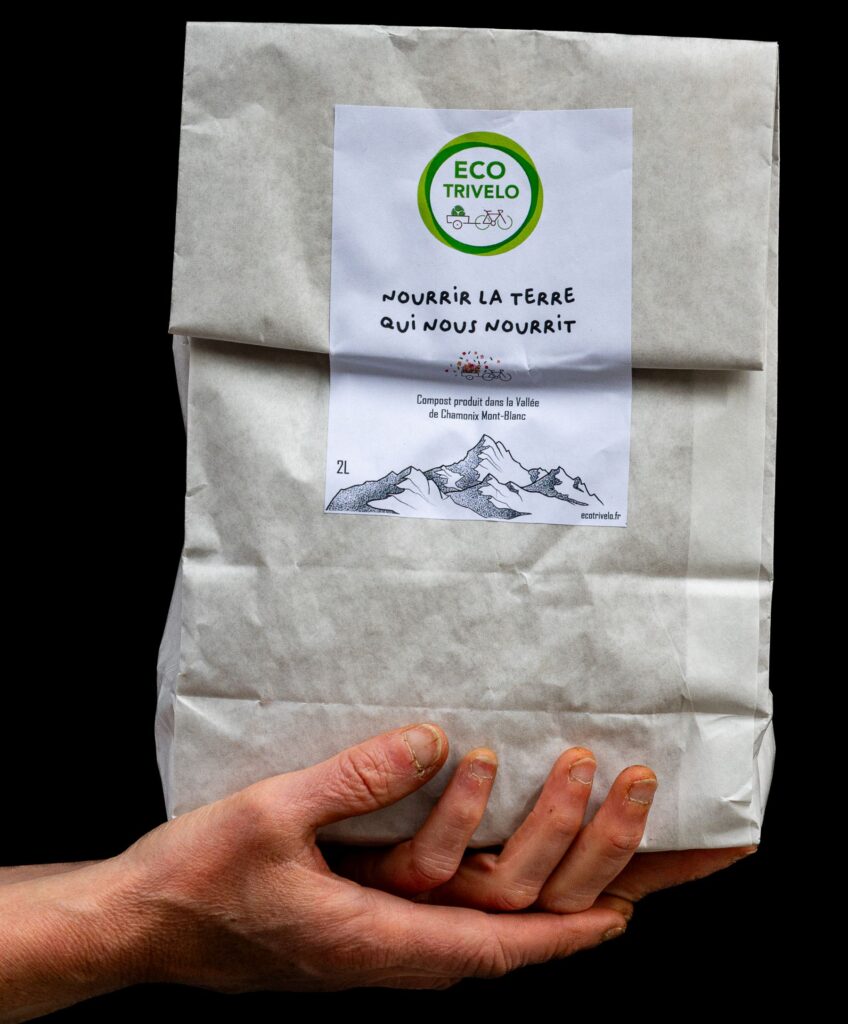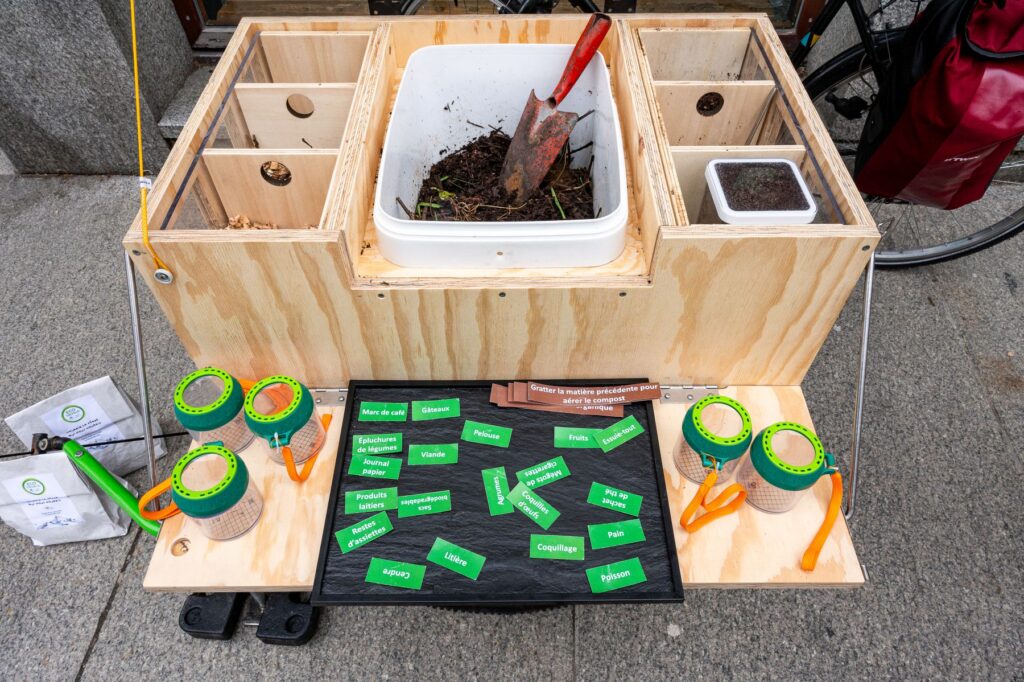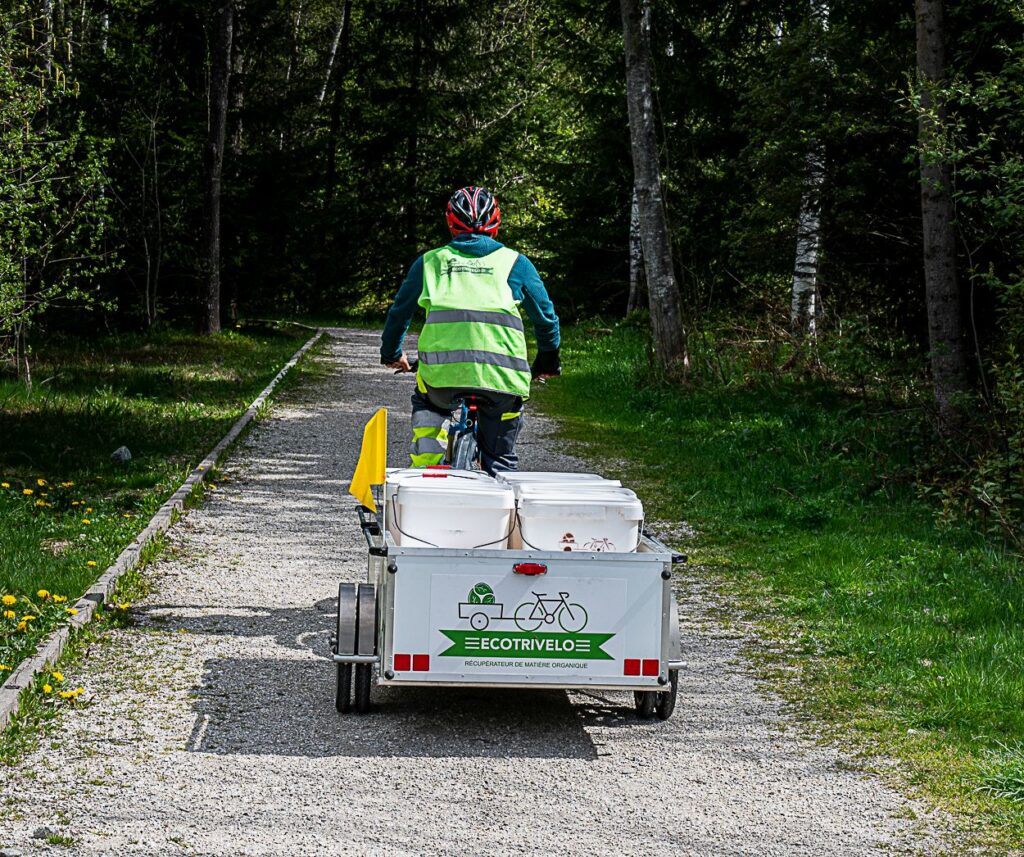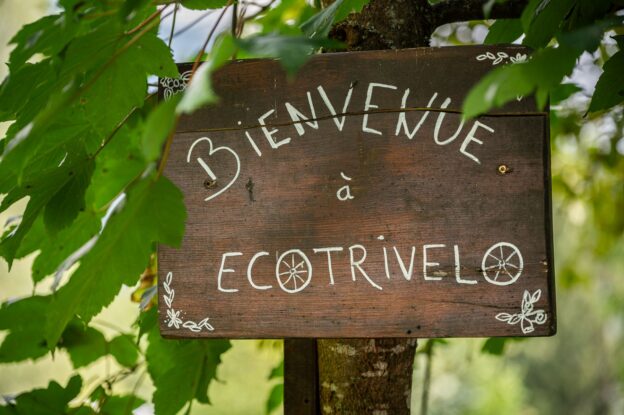This post is also available in: Français (French)
Everyone at Alpine Property is passionate about the environment that surrounds us. That is why we live in the Alps! We are all aware that we mostly “take” from our surroundings, giving back is harder to do. That’s why we’re involved in initiatives like 1% for the Planet. It allows us to make a real financial contribution to environmental efforts. One of the local initiatives we proudly support is Ecotrivelo, a non-profit making a real difference locally in the Chamonix Valley.
Turning Waste into Value
Ecotrivelo has a simple mission: transforming organic waste into valuable compost. It’s amazing when you think about it—they take something no one wants (food waste) and turn it into something that helps us grow more food. In 2023, they collected 65 tons of biodéchets (organic waste) from local businesses like restaurants and cafes. They turned this into 15 tons of rich compost, which is used to nourish gardens and farms in the area. Their process is not only eco-friendly but also community-focused.
Sustainable Waste Collection
One of the things that makes Ecotrivelo unique is their method of waste collection. Instead of using trucks, they collect waste by bicycle, keeping their operation carbon-neutral. This reduces emissions and sets an example for sustainable living. Their simple approach is making a big impact on local waste management, showing that low-tech solutions can be very effective.

Helping Businesses Compost on Their Own
Ecotrivelo doesn’t just collect waste; they also help local businesses manage their waste on-site. They work with hotels, restaurants, and other establishments to set up composting systems so they can process their own waste. This reduces the need for waste transportation and cuts down on carbon emissions. Ecotrivelo also trains businesses on how to manage these compost systems, ensuring that they work effectively in the long run.
Education and Community Involvement
A big part of Ecotrivelo’s work is educating the community. They run workshops and sessions to teach people about the importance of composting and waste reduction. In 2023, they held 12 educational sessions, helping to spread the message about the environmental benefits of composting. From schoolchildren to business owners, they reach a wide range of people.

A Closed-Loop System
The compost that Ecotrivelo produces is used locally. This creates a closed-loop system – organic waste is collected, turned into compost, and then used in local gardens and farms. One of their standout projects in 2023 was the creation of a garden at Bois du Bouchet, where their compost is helping grow pumpkins, potatoes, and leeks..
By supporting Ecotrivelo, Alpine Property is contributing to a project that’s reducing waste, promoting sustainability, and making a real difference in our community. Ecotrivelo is a great example of how local efforts can have a big impact on the environment.

Loi Anti-Gaspillage pour une Économie Circulaire (AGEC)
In France, recycling food waste has become mandatory under certain conditions. This is primarily driven by the Loi Anti-Gaspillage pour une Économie Circulaire (AGEC), which was passed in 2020, this includes provisions regarding the management of food waste.
The key points are:
- Mandatory Source Separation for Biodéchets (food waste): The AGEC law mandates that all producers of significant amounts of organic waste (biodéchets), including businesses like restaurants, hotels, and supermarkets, must separate and recycle their organic waste. This applies to establishments that generate more than 10 tons of organic waste annually. The goal is to divert organic waste from incineration or landfills, which contributes to greenhouse gas emissions. Here it seems that the 10 tons is creating a get out clause for smaller businesses. However, I suppose we have to start somewhere.
- Expansion to all households by 2024: By January 1, 2024, the law mandates that all households must have access to a solution for the separation and recycling of their food waste. This means local governments are required to provide systems for the collection or recycling of organic waste, such as through composting or other methods. I know this is happening in some places, but definitely not everywhere!
- Support for Local Composting Initiatives: The law encourages the development of local composting solutions, like compost bins, communal composting sites, or collaborations with local businesses and farms to process organic waste. This is where Ecotrivelo comes in.



